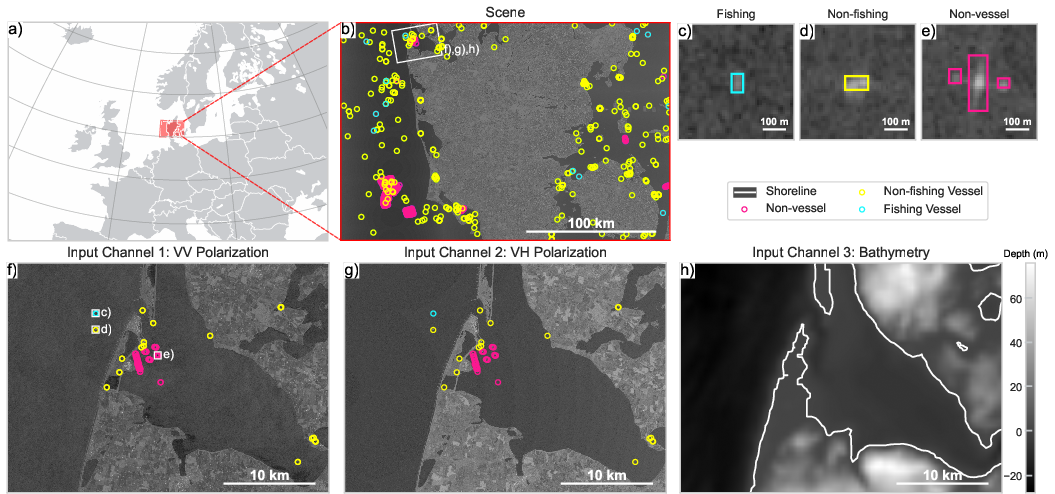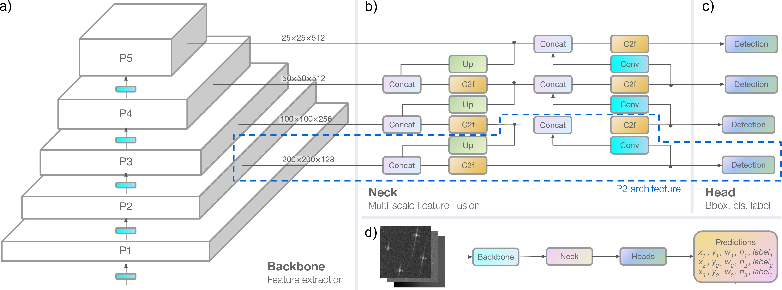Efficient SAR Vessel Detection for FPGA-Based On-Satellite Sensing (2507.04842v1)
Abstract: Rapid analysis of satellite data is vital for many remote sensing applications, from disaster response to environmental monitoring, but is becoming harder to achieve with the increasing volumes of data generated by modern satellites. On-satellite ML offers a potential solution, by reducing latency associated with transmission of these large data volumes to ground stations, but state-of-the-art models are often too large or power-hungry for satellite deployment. Vessel detection using Synthetic Aperture Radar (SAR) is a critical time-sensitive task for maritime security that exemplifies this challenge. SAR vessel detection has previously been demonstrated only by ML models that either are too large for satellite deployment, have not been developed for sufficiently low-power hardware, or have only been developed and tested on small SAR datasets that do not sufficiently represent the real-world task. Here we address this issue by developing and deploying a new efficient and highly performant SAR vessel detection model, using a customised YOLOv8 architecture specifically optimized for FPGA-based processing within common satellite power constraints (<10W). We train and evaluate our model on the largest and most diverse open SAR vessel dataset, xView3-SAR, and deploy it on a Kria KV260 MPSoC. We show that our FPGA-based model has detection and classification performance only ~2% and 3% lower than values from state-of-the-art GPU-based models, despite being two to three orders of magnitude smaller in size. This work demonstrates small yet highly performant ML models for time-critical SAR analysis, paving the way for more autonomous, responsive, and scalable Earth observation systems.
Paper Prompts
Sign up for free to create and run prompts on this paper using GPT-5.
Top Community Prompts
Collections
Sign up for free to add this paper to one or more collections.

